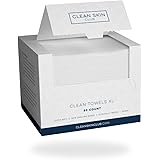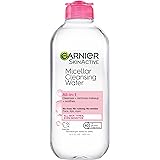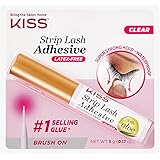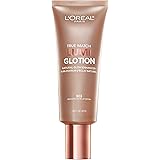Skip to main content in article(see)
If your skin is having problems, specifically acne, should you exfoliate acne-prone skin? All will be answered in the article below.
As everyone knows, exfoliation has many useful effects on the skin such as deep cleansing, unclogging pores and helping beauty nutrients penetrate deeply into the skin easily.
When does acne-prone skin need to be exfoliated?
When should you exfoliate acne-prone skin? This is a question that many women are interested in. If you only have a few small inflamed acne spots, hidden acne, blackheads, and whiteheads, then exfoliation is indispensable in your skincare process. These types of acne are mostly due to clogged pores, so it is even more necessary to exfoliate to clear the pores, thereby improving the acne condition.
However, during the exfoliation process, if you see signs of irritation on your skin, you should stop immediately.
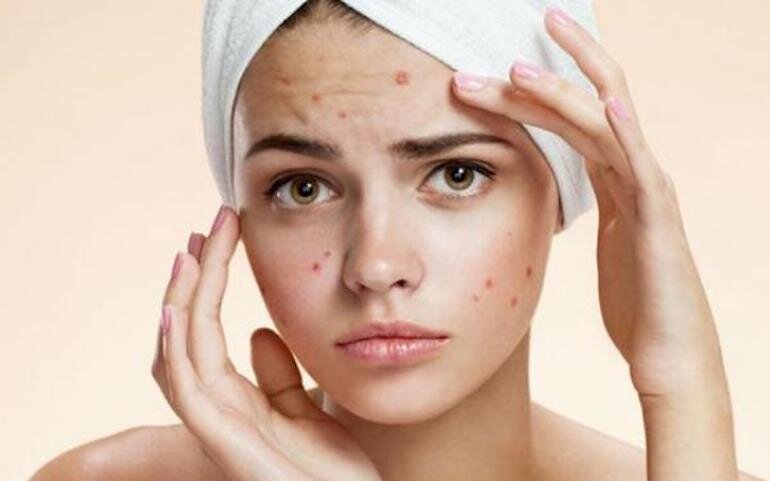
CLSEVXY Magnifying Handheld Mirror Double Sided, 1X 15X Magnification Hand Mirror, Travel Folding Held Adjustable Rotation Pedestal Makeup Desk Vanity
$9.99 (as of December 23, 2024 00:31 GMT +00:00 - More infoProduct prices and availability are accurate as of the date/time indicated and are subject to change. Any price and availability information displayed on [relevant Amazon Site(s), as applicable] at the time of purchase will apply to the purchase of this product.)EARTHLITE Disposable Face Cradle Covers – Medical-Grade, Ultra Soft, Luxurious, Non-Sticking Massage Headrest Covers for Massage Tables & Massage Chairs
$16.99 (as of December 23, 2024 00:31 GMT +00:00 - More infoProduct prices and availability are accurate as of the date/time indicated and are subject to change. Any price and availability information displayed on [relevant Amazon Site(s), as applicable] at the time of purchase will apply to the purchase of this product.)High Frequency Facial Machine - TUMAKOU Portable Handheld High Frequency Facial Skin Wand Machine with 4 Different Tubes
$36.99 (as of December 23, 2024 00:31 GMT +00:00 - More infoProduct prices and availability are accurate as of the date/time indicated and are subject to change. Any price and availability information displayed on [relevant Amazon Site(s), as applicable] at the time of purchase will apply to the purchase of this product.)ForPro Professional Collection Premium Hand Mirror with Handle, 6.3" W x 9.6" L, Multi-Purpose Handheld Mirror with Distortion-Free Reflection, Black
$4.99 (as of December 23, 2024 00:31 GMT +00:00 - More infoProduct prices and availability are accurate as of the date/time indicated and are subject to change. Any price and availability information displayed on [relevant Amazon Site(s), as applicable] at the time of purchase will apply to the purchase of this product.)NuDerma Clinical Skin Therapy Wand - Portable Skin Therapy Machine w 6 Fusion Neon + Argon Wands – Anti Aging - Clarifying - Skin Tightening & Radiance - Wrinkle Reducing
$149.95 (as of December 23, 2024 00:31 GMT +00:00 - More infoProduct prices and availability are accurate as of the date/time indicated and are subject to change. Any price and availability information displayed on [relevant Amazon Site(s), as applicable] at the time of purchase will apply to the purchase of this product.)When should you limit exfoliation for acne-prone skin?
Exfoliating the skin is necessary, but in some cases, this beauty step should be limited and carefully considered. For example, your skin is experiencing severe acne inflammation.
Skin that is contaminated with chemicals or has a medical problem will cause inflammatory acne spots to appear. At that time, the skin’s protective barrier is damaged, so it is necessary to limit physical impacts on the skin. Otherwise, the inflammation will get worse.
In this case, instead of using physical exfoliants, you can replace them with topical chemical exfoliants with gentle concentrations and ingredients. Using chemical exfoliants in gel, liquid or lotion form will limit friction on the skin, thereby causing less damage to acne spots.
A few notes to know when exfoliating acne-prone skin.
To be able to exfoliate your skin most effectively, you need to note the following:
1. Frequency of exfoliation
Acne-prone skin is relatively sensitive, so you only need to exfoliate 1-2 times a week to ensure the skin stays healthy. If you bleach too often, it will only dry out your skin and cause moisture imbalance, making acne worse.
2. Exfoliation time
Regarding usage time, it is better to follow the product instructions. For example, if you exfoliate in the form of a cleanser, you can massage gently for 1-2 minutes, while in the form of a mask, it will take about 10-15 minutes longer. For chemical exfoliation, you can wash your face immediately if you see slight irritation on the skin.
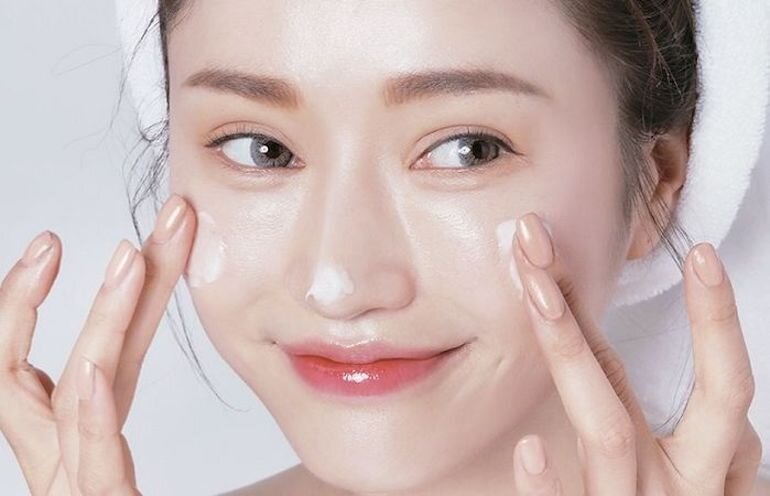
3. Operation performed
For sensitive skin like acne-prone skin, manipulations on the skin must be very gentle to avoid damaging the acne spots, causing them to break and become infected. When bleaching, massage with fingertips in a circular motion.
4. Moisturize after exfoliating
Not only for acne-prone skin but also for normal skin, after exfoliating, it will be dry and lack moisture, leading to itching and peeling. Furthermore, when the skin loses moisture, its function also declines, thereby making acne worse.
After exfoliating, you need to use additional moisturizing products or apply a mask to rehydrate your skin.
5. Choose products suitable for your skin
For acne-prone skin, you need to choose an exfoliating product suitable for your skin. You should prioritize gel and lotion products to use instead of choosing to exfoliate with large granules that cause strong rubbing on the skin. Chemical exfoliation is also a suitable choice for acne-prone skin.
Depending on the level of acne, more or less, mild or severe, choose a suitable exfoliating product for acne-prone skin. Acne-prone skin is relatively sensitive, so you need to understand your skin so you can take the best care of it.



